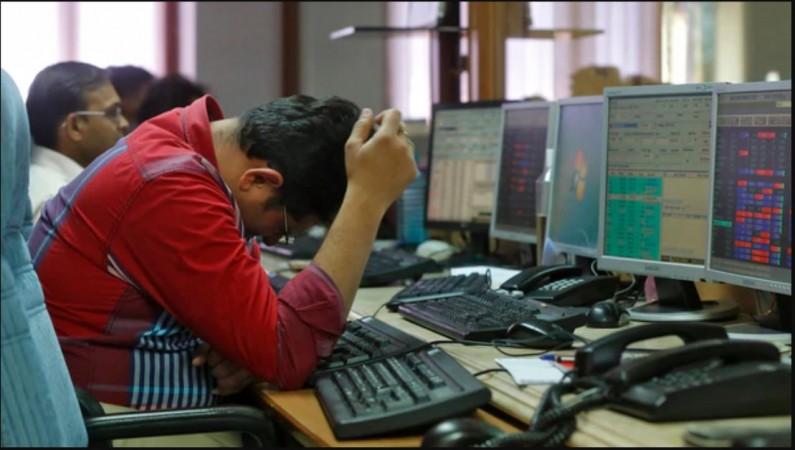The Indian stock market witnessed a freefall on Wednesday afternoon, with the BSE Sensex losing over 1,000 points in the afternoon. Around 2.45 p.m., Sensex was at 47,310.81, lower by 1,036.78 or 2.14 per cent from its previous close. The Nifty50 also fell below the psychological 14,000-mark. It was trading at 13,944.25, lower by 294.65 points or 2.07 per cent from its previous close.
The closure saw all benchmark indices in the red for the fourth consecutive session as the selling pressure mounted in the bank, auto, metal and pharma stocks. At close, the Sensex was down 937.66 points or 1.94% at 47,409.93, and the Nifty was down 271.40 points or 1.91% at 13,967.50.
Tata Motors, Axis Bank, Tata Steel, GAIL and Titan Company were among major losers on the Nifty, while gainers were Tech Mahindra, SBI Life Insurance, Wipro, ITC and Power Grid Corp. Heavy selling pressure was witnessed across sectors, led by banking, finance and oil and gas stocks. Weak global cues, selling by FIIs and mixed Q3 earnings lead to the bear run in the market.

GDP contraction estimated at 9.6%
Meanwhile, India's economy is estimated to have contracted by 9.6 per cent in 2020 due to the coronavirus pandemic, according to the World Economic Situation and Prospects 2021. It said by mid-2020, unemployment rates had escalated to a record high 23 per cent in India.
In 2021, the Indian economy is projected to grow at 7.3 per cent, according to the release by the United Nations Department of Economic and Social Affairs (UNDESA). In 2022, the growth rate, however, is likely to slow down to 5.9 per cent from this year's projected level.
The report noted that economic growth in South Asia in 2021 will be insufficient, at 6.9 per cent, to make up for the losses of 2020, as pandemic hotspots re-emerge and, increasingly, the ability of governments to deal with the multitude of challenges becomes exhausted.
"While trade, remittances and investment are expected to pick up in 2021, as much of the global economy moves towards recovery from the widespread lockdown, investment and domestic consumption in many South Asian countries will nevertheless remain subdued owing to the continuing threat of the pandemic and the scarring effects of the crisis," it said.
(With inputs from IANS)








